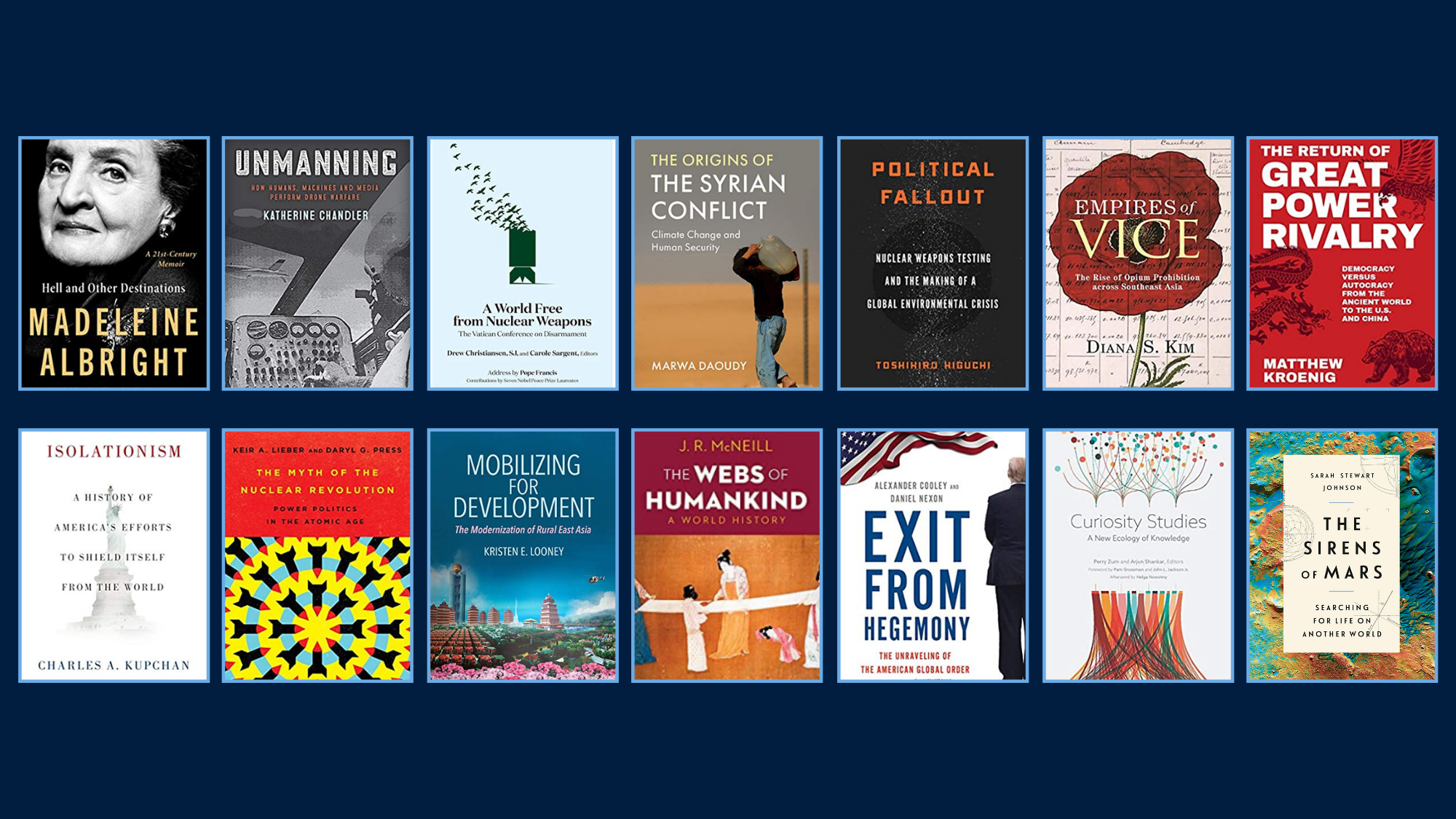From New York Times bestsellers to comprehensive textbooks, SFS faculty published a range of texts in 2020 that enhance our understanding of our modern world, and the history that brought us here. Showcasing the wide range of SFS professors’ expertise, the books cover a variety of subjects, from the history of U.S. isolationism to the environmental factors leading to conflict and the search for extraterrestrial life on Mars. In a year when so many global norms have been upended, these new and forthcoming texts help us to make sense of our times and share projections and recommendations for what might come next.
Madeleine Albright, Hell and Other Destinations (HarperCollins)
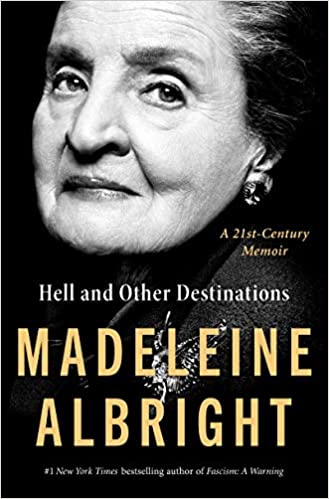
Madeleine K. Albright, the Michael and Virginia Mortara Distinguished Professor of Diplomacy in the School of Foreign Service, recounts her post-State Department career in a memoir that takes the reader through roles she has held since her tenure as U.S. Secretary of State. Hell and Other Destinations draws on her experiences as an author, professor, businesswoman, advocate, advisor and more and shares the lessons she has learned in her decades-long career to offer recommendations on how to tackle some of the greatest challenges of our times.
The book reveals an intimate portrait of one of the foremost leaders in U.S. foreign policy. The New Yorker described the book as “a richly detailed memoir” that “presents an intricate portrait of a diplomat, and her ardent belief in democratic values and human rights.”
Read more about Hell and Other Destinations.
Katherine Chandler, Unmanning: How Humans, Machines and Media Perform Drone Warfare (Rutgers University Press)
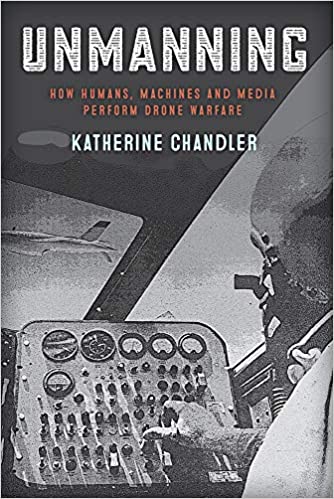
Assistant Professor Katherine Chandler’s new book traces the creation and evolution of unmanned aircraft and their place in theaters of war. By examining the history of the United States’ experimental pilotless planes flown between 1936 and 1992, Chandler reframes the drone as having precedent in U.S. military strategy long before the war on terror. At the core of Chandler’s book is the gap between the daily business of drone warfare and its claim to mechanical, global control. Instead, the humans, machines and media sustaining aerial warfare highlight the fallibility of drone flight and the dangers of humans acting as a technology themselves.
In a review of the book, University of Pennsylvania professor Paul Saint-Armour writes, “Drone theory tends to replicate the god’s eye view enjoyed by its object. Katherine Fehr Chandler bucks this trend, grounding her new theory of ‘unmanned’ aerial vehicles in their wayward and failure-ridden history as human–machine–media assemblages.”
Read more about Unmanning: How Humans, Machines and Media Perform Drone Warfare.
Fr. Drew Christiansen and Carole Sargent (eds.), A World Free from Nuclear Weapons: The Vatican Conference on Disarmament (Georgetown University Press)
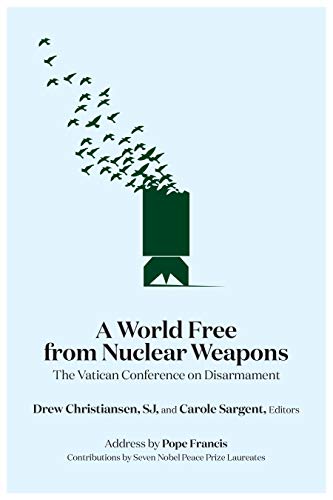
Fr. Drew Christiansen, S.J., Distinguished Professor of Ethics and Human Development and Senior Fellow at the Berkley Center for Religion, Peace and World Affairs, and Dr. Carole Sargent, Director of Scholarly Publications at Georgetown University, explore the historic Vatican Conference on Nuclear Disarmament in this latest book. The 2017 conference represents a milestone in the history of the Church. As Christiansen and Sargent point out, when Pope Francis condemned the use and threat of use of nuclear weapons it marked the first time a pontiff in the nuclear era had taken a complete stand against nuclear weapons. Christiansen, who was part of a Holy See delegation to the UN conference on the Treaty to Prohibit Nuclear Weapons, traces the significance of the conference and gathers testimony from attending Nobel Peace Prize laureates, religious figures, diplomats, activists, academics and a Hiroshima survivor who made their case against the use of these arms.
In a review of the book, Professor Emeritus of Peace Studies at the University of Notre Dame George Lopez writes, “[It] demonstrates the role that the religious community can play in an important public policy discussion and how it might contribute to a political movement. The volume will interest anyone examining the relevance of religious actors in public life.”
Read more about A World Free from Nuclear Weapons: The Vatican Conference on Disarmament.
Marwa Daoudy, The Origins of the Syrian Conflict: Climate Change and Human Security (Cambridge University Press)
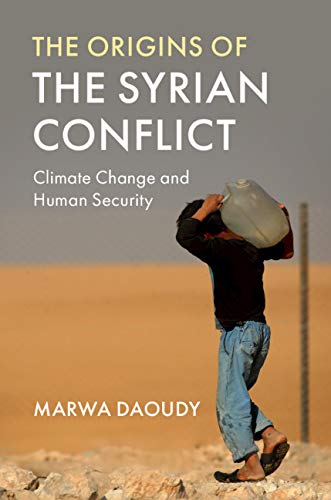
Associate Professor Marwa Daoudy deftly combines her expertise in environmental politics, critical security and Middle East studies in her most recent book, which offers a theoretically informed investigation into the link between climate change, human security and conflict in the context of the Syrian civil war. Daoudy reviews debates around the concept of environmental security, exploring perspectives on climate, water and food security, and climate-induced migration. She relies on extensive field research, including interviews with Syrian officials and citizens, and research by domestic Syrian experts to answer the questions: Does climate change lead to conflict? Did climate change cause the 2011 Syrian uprising? Placing non-Western and marginalized perspectives at the forefront of her multidisciplinary approach, Daoudy explores the factors at play across Syria’s environmental, ideological, economic and social landscape in the lead-up to the uprising and its aftermath. By focusing on the drivers of human insecurity in Syria, Daoudy constructs a broader theoretical framework linking human security and climate insecurity.
In reviewing The Origins of the Syrian Conflict, Birmingham University professor Rita Floyd called it “an impressive book and a must read for anyone who wants to understand the complex nexus between climate change and security.”
Read more about The Origins of the Syrian Conflict: Climate Change and Human Security.
Toshihiro Higuchi, Political Fallout: Nuclear Weapons Testing and the Making of a Global Environmental Crisis (Stanford University Press)
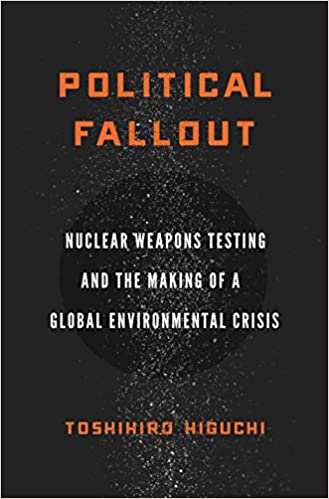
Assistant Professor Toshihiro Higuchi’s new book examines the history of the environmental fallout caused by nuclear weapons testing during the Cold War, when global superpowers detonated hundreds of nuclear weapons in the atmosphere. Higuchi focuses on what came in the wake of these extensive tests: global radioactive contamination, an international environmental crisis and the world’s response to slow, radioactive decay. He outlines how the Partial Test Ban Treaty of 1963 evolved to not only control both the nuclear arms race but to curb the accompanying radioactive pollution. Engaging with sources in English, Russian and Japanese, Higuchi highlights the divergence of scientific thinking between nations and explores the public consciousness of environmental risk to analyze a history that foreshadows the impending climate crisis of today.
Jacob Darwin Hamblin, author of Arming Mother Nature: The Birth of Catastrophic Environmentalism, writes in his review of the book, “Higuchi has written a superb study that articulates the role of fallout in ways we have not seen before, showing us how state power shaped our understanding of environmental risks. It is clear that this Cold War story, while forgotten by most, still frames how we imagine the challenges of the so-called Anthropocene.”
Diana Kim, Empires of Vice: The Rise of Opium Prohibition across Southeast Asia (Princeton University Press)
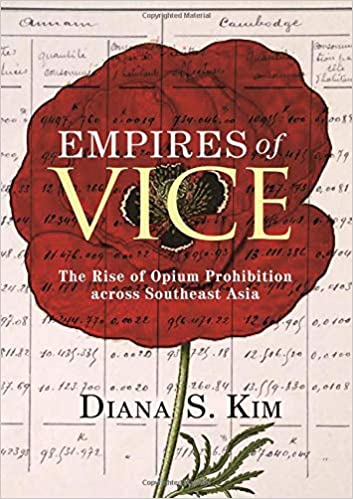
Assistant Professor Diana Kim explores the history of opium in Southeast Asia, from its widespread trade to prohibition, in her book about governance and colonial legacy. Its central question asks why British and French colonial officials–who had fueled the drug’s popularity due to its lucrative tax revenue—began to ban opium in the region from the turn of the 20th century. To answer this principal inquiry, Kim dives deep into the workings of colonial bureaucracy, highlighting the role of local administrators in the policy reversal on such a pivotal component of overseas rule.
Her broad survey of colonial experiences in places that have become present-day Myanmar, Cambodia, Laos, Malaysia, Singapore and Vietnam examines the influence of European rulers in creating, perpetuating and reconfiguring the region’s political economy of drugs and power.
In a review of the text, Krishan Kumar, author of Visions of Empire: How Five Imperial Regimes Shaped the World, writes, “This is a book that will revise our understanding of one of the most significant but least understood episodes of imperial history.”
Read more about Empires of Vice: The Rise of Opium Prohibition across Southeast Asia.
Matthew Kroenig, The Return of the Great Power Rivalry: Democracy versus Autocracy from the Ancient World to the U.S. and China (Oxford University Press)
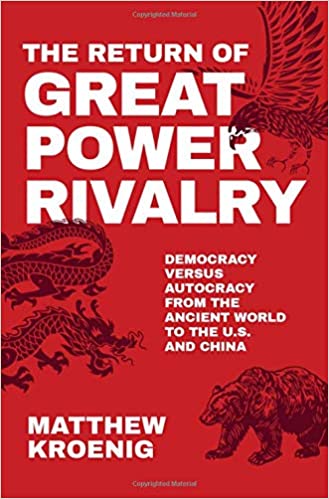
In his latest book, Professor Matthew Kroenig makes a case for American optimism in the face of recurring great power rivalries with Russia and China. Providing a historical analysis of superpower competition from ancient Greece to the Cold War, Kroenig seeks to determine the factors that lead to victory in these international contests, especially between democratic and autocratic great powers. In contrast to recent analysis about America’s displaced global leadership, he argues that democracies have built-in advantages over autocracies in international competition and applies these findings to current competition between the United States, Russia and China. Kroenig comes to the conclusion that the hard-power democracy of the United States serves as a decisive advantage for American global leadership in the future.
Fredrick Kempe, President and CEO of the Atlantic Council, writes that the book “brilliantly counters the current political narrative of autocratic ascendancy and democratic decline. By underscoring the importance of strong political institutions, his reflections serve as a handbook for contemporary leaders on how to prevail in a new, and more complex, era of great power competition.”
Charles Kupchan, Isolationism: A History of America’s Efforts to Shield Itself from the World (Oxford University Press)
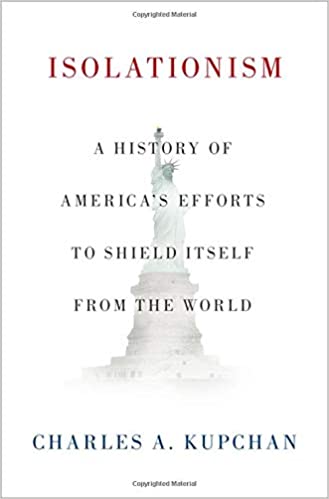
In a book tracing the full arc of isolationism across American history—from the founding era through the Trump presidency—Professor Charles Kupchan explores the enduring connection between the isolationist impulse and the American experience. Isolationism examines the sources and impact of the U.S. aversion to foreign entanglement from the presidency of George Washington until the Japanese attack on Pearl Harbor. Kupchan writes that, amid World War II and the Cold War, Americans finally broke with their isolationist past and embraced an ambitious brand of internationalism that led to a more stable and democratic world. But since the end of the Cold War, he argues, overreach in the Middle East, political polarization and the economic dislocations of globalization and COVID-19 have been taking a toll on the nation’s internationalist appetite; isolationist sentiment is making a comeback. Moving forward, Kupchan recommends a judicious retrenchment that constitutes “the middle ground between doing too much and doing too little” and that right-sizes America’s role on the international stage.
Former U.S. Secretary of State Henry Kissinger writes, “Comprehensive and objective, Kupchan’s Isolationism is a useful contribution to the history and contemporary understanding of American isolationism.”
Read more about Isolationism: A History of America’s Efforts to Shield Itself from the World.
Joanna I. Lewis, Ashley Esarey, Mary Alice Haddad and Stevan Harrell (eds.), Greening East Asia: The Rise of the Eco-developmental State (November 2020, University of Washington Press)
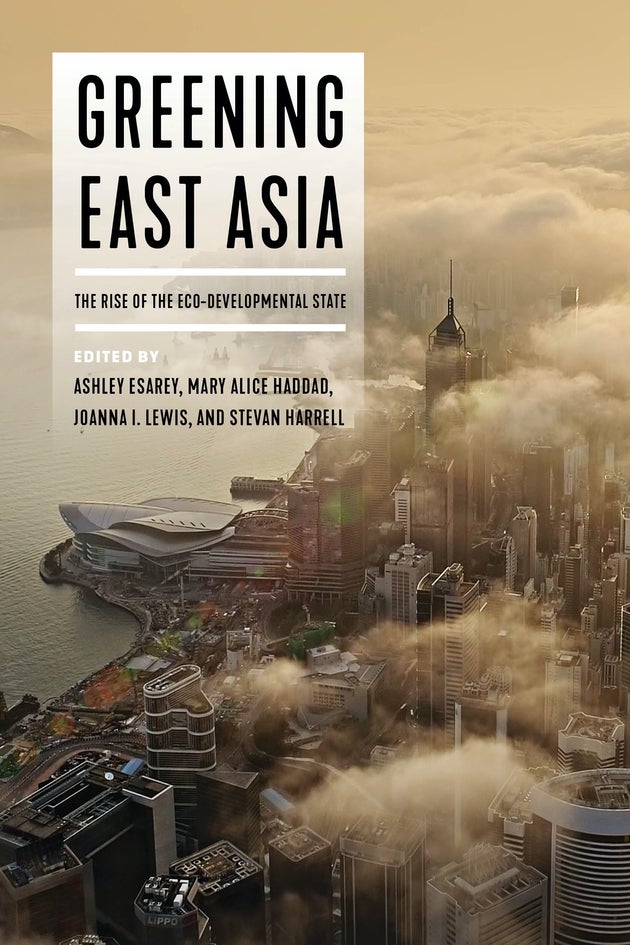
In her latest book, Professor Joanna Lewis, Director of the Science, Technology and International Affairs program, and her co-editors explore the insights East Asia offers for environmental politics, advocacy and policy. By focusing on a region that consumes more than half the world’s coal, a quarter of its petroleum products and a tenth of its natural gas, the text’s contributors share important analysis on key issues in the field, including nuclear power and fallout, the fossil fuel and green energy industries and sustainable rural development. By tracing the overlap and linkages shared by countries in the region, while also taking care to explore the specific economic, political and historical factors influencing environmental action and policy in the countries studied, Greening East Asia shares new methods for understanding “eco-development” and reveals why environmental sustainability is a vital part of economic growth.
Timothy Hildebrandty of the London School of Economics and Political Science writes that the book “provides a comprehensive look at incredibly important and complicated environmental challenges facing East Asia and, indeed, the rest of the world.”
Read more about Greening East Asia: The Rise of the Eco-developmental State.
Keir A. Lieber and Daryl G. Press, The Myth of the Nuclear Revolution: Power Politics in the Atomic Age (Cornell University Press)
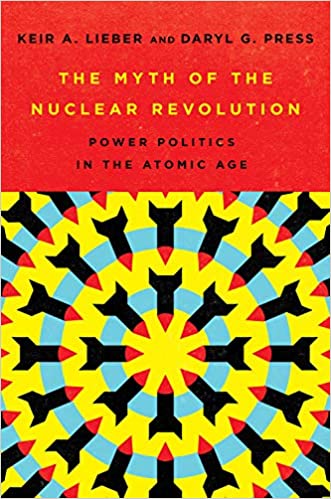
Professor Keir Lieber, Director of the Center for Security Studies, highlights the opposition between theory and reality in his latest work, which examines international relations in the nuclear age. Analysts have long posited that the race to build nuclear weapons stockpiles during the Cold War would create a subsequent reliance on mutually assured destruction as a foundation for peace and scaled-back competition. Lieber and Press’s text seeks to expose the flaws in this argument. Pointing to where the “nuclear revolution” has fallen short, they caution that nuclear instability may be the result of technological change in the 21st century and strive to answer lingering questions about international relations in a nuclear world.
John Mearsheimer of the University of Chicago writes in a review of the book, “This is the most important book written about nuclear strategy since the Cold War. Lieber and Press offer a powerful and compelling challenge to the widely held belief that nuclear weapons have revolutionized world politics. It is a must read for students of international security.”
Read more about The Myth of the Nuclear Revolution: Power Politics in the Atomic Age.
Kristen Looney, Mobilizing for Development: The Modernization of Rural East Asia (Cornell University Press)
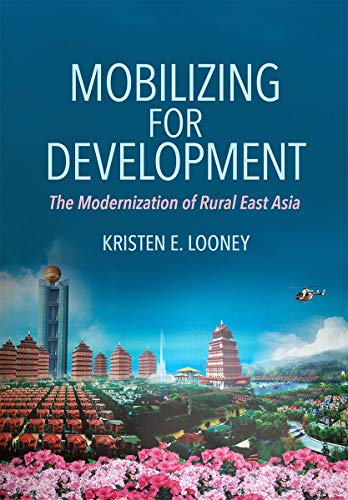
In Mobilizing for Development, Assistant Professor Kristen Looney compares the rural development experiences of Taiwan, South Korea and China over a six-decade period. Based on years of fieldwork in Asia, her research demonstrates that these countries’ development achievements were not solely the byproduct of successful industrialization. Instead, Looney shows how rural mass mobilization campaigns were a major force in effecting dramatic change throughout the region, and how different rural development outcomes resulted from the interplay between campaigns and local institutions. The book provides a case study-based analysis of historical state-led development initiatives and agrarian change.
In a review of the book, Andrew Mertha of Johns Hopkins University praised Looney’s methodology, writing, “Her explanatory mechanism is political campaigns, an audacious analytical approach that will change the way we understand urban bias, state-society relations and developmental imperatives.”
Read more about Mobilizing for Development: The Modernization of Rural East Asia.
John McNeill, The Webs of Humankind: A World History, vols. 1 & 2 (January 2020 and forthcoming) (W. W. Norton)
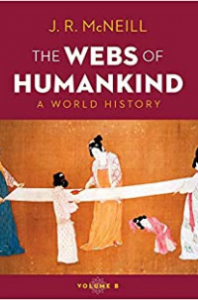
In this introductory survey of world history, Professor John McNeill guides students through the connective webs that have long shaped exchanges and patterns of trade, religious belief, technology, pathogens and much more. The forthcoming volume picks up where his first left off and explores the contours of global history from 1400 to the present day.
The texts examine linkages among communities crossing time and space. The first volume explores the evolution of humans, the spread of agriculture and farming and the development of regional cultures and the interplay between them. In the second volume, McNeill traces the webs connecting the modern world, including biological, cultural and economic globalization, religious and intellectual movements, war, imperialism, industrialization, nationalism, colonization, decolonization and the environmental tumult of the Anthropocene. Together with digital resources that allow students to engage with different types of historical evidence, The Webs of Humankind provides an effective teaching tool for introductory world history courses and offers original ideas on how we should understand our shared global past.
Read more about The Webs of Humankind: A World History.
Daniel Nexon and Alexander Cooley, Exit From Hegemony: The Unraveling of the American Global Order (Oxford University Press)
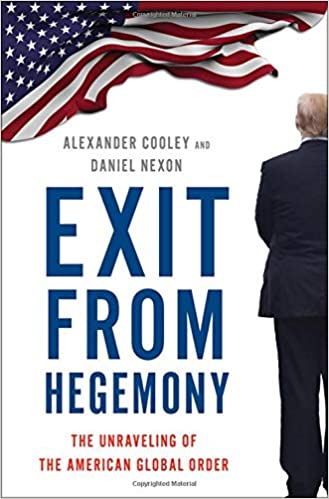
In Exit From Hegemony, Professor Daniel Nexon investigates the decline of the U.S.-dominated international system and seeks to find key signposts for hegemonic decline in the contemporary world. Alongside his co-author, Alexander Cooley, Nexon argues that the erosion of the liberal international order predates the 2016 election by over a decade. They call attention to three determining factors supporting this claim: contest and influence from other great powers, namely China and Russia; the loss of the U.S. monopoly on providing economic and military goods and transnational counter-order movements, including the rise of right-wing nationalism within the United States.
Contextualizing how these factors interact with one another in the current political landscape, Nexon and Cooley provide evidence that a growing number of countries and organizations are now finding alternatives to American dominance, which serves to undermine the previous global status quo.
Seva Gunitsky of the University of Toronto writes in a review of the book, “As America’s unipolar moment draws to a close, Cooley and Nexon provide an essential and much-needed guide for the turbulent transition ahead.”
Read more about Exit From Hegemony: The Unraveling of the American Global Order.
Arjun Shankar and Perry Zurn (eds.), Curiosity Studies: A New Ecology of Knowledge (University of Minnesota Press)
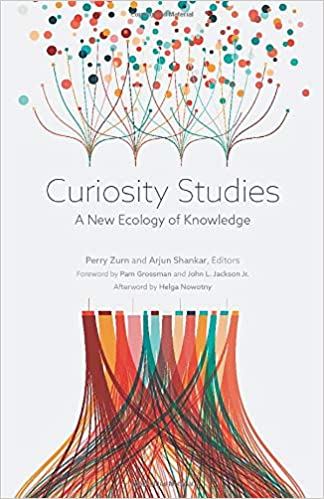 In Curiosity Studies, Assistant Professor Arjun Shankar and his co-editor Perry Zurn collect research from scholars in more than a dozen fields in an effort to define and understand curiosity. The contributors explore the phenomenon through analysis addressing the practice of scientific inquiry, the contours of human learning, the stakes of social difference and the potential of radical imagination. The text examines curiosity’s benefits and ethics to argue that it is not a neutral phenomenon but a practice with historical and political importance. Curiosity Studies is fully open access and available on the multimedia, interactive interface Manifold, and is supplemented with enriched text, hyperlinked interviews, pedagogical materials, contributor bios and an accompanying podcast series. As such, the work explores new possibilities for the scholarly form in addition to offering a rigorous cross-discipline study of curiosity itself.
In Curiosity Studies, Assistant Professor Arjun Shankar and his co-editor Perry Zurn collect research from scholars in more than a dozen fields in an effort to define and understand curiosity. The contributors explore the phenomenon through analysis addressing the practice of scientific inquiry, the contours of human learning, the stakes of social difference and the potential of radical imagination. The text examines curiosity’s benefits and ethics to argue that it is not a neutral phenomenon but a practice with historical and political importance. Curiosity Studies is fully open access and available on the multimedia, interactive interface Manifold, and is supplemented with enriched text, hyperlinked interviews, pedagogical materials, contributor bios and an accompanying podcast series. As such, the work explores new possibilities for the scholarly form in addition to offering a rigorous cross-discipline study of curiosity itself.
In their foreword to the book, University of Pennsylvania professors Pam Grossman and John L. Jackson Jr. write, “We’re confident that this collection of essays will inspire you to reconsider curiosity as a fundamental and all-too-often neglected element of what it means to be a human being.”
Read more about Curiosity Studies: A New Ecology of Knowledge.
Sarah Stewart Johnson, The Sirens of Mars: Searching for Life on Another World (Crown)
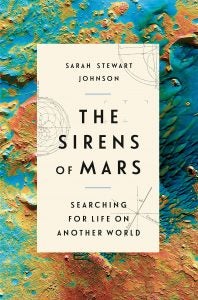
In The Sirens of Mars Associate Professor Sarah Stewart Johnson explores our centuries-old effort to understand the planet Mars, and, in doing so, presents a natural history of a place no human has ever set foot. This deeply personal book, Johnson’s first, also explores the scientific and existential stakes of the search for life: what the struggle to contend with the truly alien means for research and the researcher, and why the fundamentally human longing to know that we are not alone in the universe actually matters. Johnson draws on years of archival research and professional experience, including her work with the Spirit, Opportunity and Curiosity rovers.
The Sirens of Mars published to widespread acclaim and garnered the praise of Anthony Doerr (the Pulitzer-prize winning author of All the Light We Cannot See), who wrote in The New York Times that, “Johnson’s prose swirls with lyrical wonder, as varied and multihued as the apricot deserts, butterscotch skies and blue sunsets of Mars.”
Read more about The Sirens of Mars: Searching for Life on Another World.
